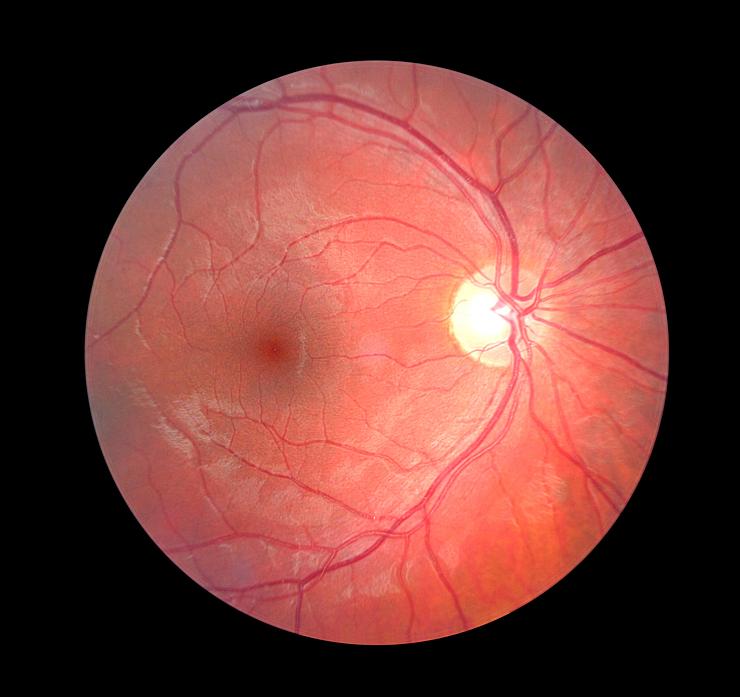Medically reviewed by Dr. Ben Wild
From the FYidoctors Ottawa - McLeod St
Eye Floaters: Causes, Treatments & Options

Eye Floaters: Causes, Treatments & Options
Eye floaters can be a real nuisance, affecting your vision and quality of life. While they're usually harmless, understanding what causes them and how to manage them effectively is crucial for maintaining good eye health. In this article, we'll dive into the world of eye floaters, exploring their causes, symptoms, and the various treatment options available to help you see clearly again.
What Are Eye Floaters?
Eye floaters are small specks, lines, or cobweb-like shapes that seem to drift through your field of vision. They may appear as:
- Dark or transparent dots
- Squiggly lines
- Threadlike strands
- Cobwebs or rings
These floaters are particularly noticeable when looking at bright, plain backgrounds like a blue sky or a white wall. While they may seem to be in front of your eye, they're actually floating inside the vitreous – the gel-like substance that fills the inside of your eyeball.
As you move your eyes, the floaters tend to dart away, making them difficult to focus on directly. Most of the time, eye floaters are nothing to worry about and don't require treatment. However, a sudden increase in floaters or the appearance of flashes of light could indicate a more serious problem that requires prompt medical attention.
Why Do Eye Floaters Occur?
Eye floaters are a common occurrence, especially as we age. The primary cause of eye floaters is the natural aging process of the vitreous humor – the gel-like substance that fills the eye. As we get older, the vitreous becomes more liquid and less gel-like, causing collagen fibers within the vitreous to clump together. These clumps cast shadows on the retina, which we perceive as floaters.
What is the Main Cause of Eye Floaters?
While age-related changes are the most common cause of eye floaters, several other conditions can contribute to their development:
- Posterior Vitreous Detachment (PVD): As the vitreous pulls away from the retina, it can create floaters. This is a normal occurrence. 65% of people have had at least 1 eye with a PVD by the age of 65.
- Eye Inflammation: Conditions like uveitis can cause inflammation in the eye, leading to floaters.
- Bleeding in the Eye: Injuries, diabetes, or hypertension can cause hemorrhages in the vitreous, resulting in floaters.
- Torn Retina: A retinal tear can lead to floaters and requires immediate medical attention.
Certain eye surgeries and medications can also cause floaters as a side effect. If you experience a sudden increase in floaters or notice them alongside flashes of light or vision loss, seek prompt medical care to rule out serious conditions.
How to Diagnose Eye Floaters
Diagnosing eye floaters typically involves a comprehensive eye examination performed by an optometrist or ophthalmologist. During the exam, the doctor will use special tools to widen the pupil, allowing them to thoroughly examine the retina and vitreous for any abnormalities or signs of underlying conditions.
In some cases, if the vitreous is too dense or opaque to see through clearly, an ultrasound may be used to get a better view of the back of the eye. This imaging technique helps the doctor assess the condition of the retina and identify any potential issues that may be causing the floaters.
It's essential to have regular eye exams to monitor your eye health and address any changes or concerns promptly. If you experience a sudden increase in floaters or notice them alongside flashes of light or vision loss, don't hesitate to schedule an appointment with your eye doctor for a thorough evaluation.
Effective Treatments for Eye Floaters
While eye floaters often require no treatment, as they tend to become less noticeable over time, there are several options available for those experiencing persistent or bothersome floaters. In many cases, simply observing the floaters and allowing the brain to adapt to their presence is sufficient.
However, if eye floaters significantly impair vision or quality of life, more proactive treatments may be considered:
- Vitrectomy: This surgical procedure involves removing the vitreous humor containing the floaters and replacing it with a saline solution. Although effective, vitrectomy carries risks such as retinal detachment and cataracts, so it is typically reserved for severe cases.
- Laser Vitreolysis (Laser Floater Treatment): This less invasive option uses a laser to break up the floaters, making them less visible. The laser precisely targets the floaters, vaporizing them into smaller, less noticeable pieces that are eventually absorbed by the body. While laser vitreolysis may not be suitable for all types of floaters, it has shown promise as a safer alternative to surgery.
Consulting with an eye care professional is crucial in determining the most appropriate treatment approach for your specific case of eye floaters. They can assess the severity of your symptoms and recommend the best course of action to help you achieve clearer, more comfortable vision.
When to Seek Medical Attention for Eye Floaters
While eye floaters are often harmless and do not require treatment, there are certain situations where seeking prompt medical attention is crucial. If you experience a sudden increase in the number or size of floaters, accompanied by flashes of light or a loss of peripheral vision, it could indicate a serious condition such as a retinal tear or detachment.
Did You Know? Posterior vitreous detachment (PVD), a common cause of floaters, occurs in about 65% of people over the age of 65. However, it can also happen earlier in life, particularly in those who are nearsighted or have experienced eye trauma.If you notice these symptoms, it is essential to contact your eye care provider immediately, as a retinal tear or detachment can lead to permanent vision loss if left untreated. Your doctor will perform a comprehensive eye exam to assess the health of your retina and determine the appropriate course of action. Early detection and treatment of retinal issues can help preserve your vision and prevent further complications.
FAQ
What helps eye floaters go away?
What is the main cause of eye floaters?
Can eye drops help floaters?
How long do eye floaters last?
What vitamin gets rid of floaters?
Why do I suddenly have floaters in one eye?
How do I know if my eye floater is serious?
What is the most effective treatment for floaters?

